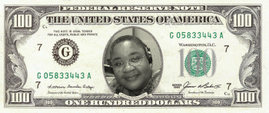Week 6: Tagging, Folksonomies & Technorati
15. Read a few perspectives on Web 2.0, Library 2.0 and the future of libraries and blog your thoughts.
"Away From the Icebergs:"
In this article, Rick Anderson discussses the role of librarians and libraries in light of 2.0. One of the ideas he introduces is that we must realize that the library no longer has a monopoly on information. Now that anyone can "Google" a topic, or look something up in Wikipedia (among other places), we must consider changing the way we work to incorporate these tools, and help our customers.
I don't even like the idea of the library having a monopoly on information. Having so many tools out there that are freely available to anyone who chooses to use them is a bonus for customers - but also a bonus for the library. The amount of information that we can now access has increased manifold. So what if we don't own it? We get to use it, and what's more, it's mostly FREE!
Our role as information professionals has not been diminished; it's become enhanced, because now we can take on the job of helping people to understand and use these tools with a critical eye. Wikipedia, for example, is a tool where anyone can contribute. This means that the quality of the information may be uneven. We librarians should take on the role of teaching the public how to critically assess the information they find, just as we always have. I've been using Usenet newsgroups in the same way for quite a few years. I have used "hearsay" information I've uncovered by searching Usenet as clues that have helped me immensely when researching some obscure topic. With Wikipedia, all one really needs to know is that facts need to be verified via some other source. It's still an excellent jumping-off place, and I recommend it highly.
Anderson states that: "No profession can survive if it throws its core principles and values overboard in response to every shift in the zeitgeist. However, it can be equally disastrous when a profession fails to acknowledge and adapt to radical, fundamental change in the marketplace it serves. " I agree. I predict that there are lots of wonderful tools that are part of "2.0," but eventually, we will sift through and find that certain ones are nice, but not necessary in the library world. We will keep others that lend themselves heavily to the work we do. Some of those tools will evolve into even better ones. But we must go through all of this revolution, try out everything to get from where we started to where we are going.
Subscribe to:
Post Comments (Atom)




No comments:
Post a Comment